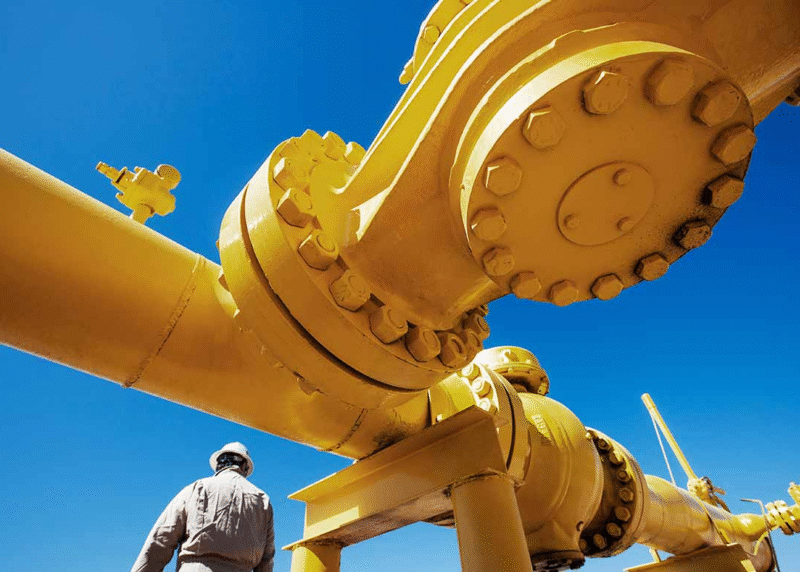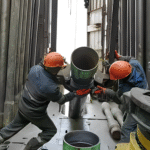Use of Drilling Fluids and Additives
Drilling fluids, often called drilling muds, are essential components in oil, gas, and geothermal well drilling operations. These specialized fluids perform multiple critical functions, ensuring drilling efficiency, wellbore stability, and environmental safety. Alongside various additives, drilling fluids adapt to different geological formations and operational requirements, making them highly versatile in the drilling industry.
In this article, we will explore what drilling fluids are, their production, key additives, and their extensive industrial applications.
🧠 What are Drilling Fluids?
Drilling fluids are complex mixtures designed to aid the drilling process by lubricating and cooling the drill bit, carrying rock cuttings to the surface, and maintaining wellbore stability. They come in various types: water-based muds (WBM), oil-based muds (OBM), and synthetic-based muds (SBM).
These fluids also control formation pressures, minimize formation damage, and reduce environmental risks. Without effective drilling fluids, drilling operations would face increased risks of blowouts, stuck pipe, or well collapse.
⚙️ Production and Formulation of Drilling Fluids
Drilling fluids start as base fluids such as water, oil, or synthetic liquids. Producers mix these with a range of additives to tailor the fluid properties for specific drilling conditions.
The formulation process includes adjusting viscosity, density, pH, and filtration characteristics. Producers constantly monitor and modify fluid composition during drilling to optimize performance.
🧪 Key Additives Used in Drilling Fluids
Additives improve drilling fluid performance and address various challenges encountered underground. Here are some of the most important ones:
-
Bentonite Clay: Provides viscosity and suspension properties, allowing cuttings to be carried to the surface efficiently.
-
Barite: Used to increase fluid density, helping control formation pressure and prevent blowouts.
-
Polymers: Enhance fluid viscosity and reduce fluid loss by sealing porous rock formations.
-
Lime: Controls pH levels and prevents clay swelling.
-
Corrosion Inhibitors: Protect drill string and equipment from chemical damage.
-
Surfactants: Improve the fluid’s ability to wet solids and enhance cleaning.
-
Lost Circulation Materials (LCM): Prevent fluid loss into porous or fractured formations.
🏭 Industrial Applications of Drilling Fluids and Additives
The uses of drilling fluids and additives are diverse and critical for safe and efficient drilling. Here are key applications:
🛢️ Oil and Gas Exploration
Drilling fluids cool the drill bit, carry cuttings, stabilize the wellbore, and prevent formation fluids from entering the well. Additives customize the fluid properties depending on well depth, temperature, and geology.
🧱 Geothermal Energy Drilling
In geothermal wells, drilling fluids must withstand high temperatures and corrosive environments. Additives help maintain stability and fluid properties under these extreme conditions.
🚧 Environmental Drilling and Remediation
Specialized drilling fluids enable the installation of monitoring wells and remediation systems while minimizing environmental impact.
🧪 Mineral and Water Well Drilling
Additives adjust the fluid to match specific geological formations, enhancing drilling efficiency and well stability.
✅ Advantages of Using Drilling Fluids and Additives
-
Improved Drilling Efficiency: Efficient removal of cuttings reduces downtime.
-
Wellbore Stability: Minimizes risks of collapse or stuck pipe.
-
Pressure Control: Helps maintain safe formation pressures.
-
Environmental Safety: Modern fluids reduce contamination and are often biodegradable.
-
Cost Savings: Optimized fluid systems reduce non-productive time and equipment wear.
❓ FAQs about Drilling Fluids and Additives
Q: What types of drilling fluids exist?
There are mainly water-based, oil-based, and synthetic-based drilling fluids, each suited for different operational environments.
Q: How do additives improve drilling fluids?
Additives modify properties such as viscosity, density, and filtration control, adapting the fluid to specific drilling challenges.
Q: Are drilling fluids environmentally safe?
Modern formulations often use biodegradable components and comply with environmental regulations to minimize impact.
Q: Why is bentonite important in drilling fluids?
Bentonite enhances viscosity and helps suspend cuttings for easy removal from the well.
Q: Can drilling fluids be recycled?
Yes, many drilling fluids are treated and reused to reduce waste and operational costs.
🧾 Conclusion– Use of Drilling Fluids and Additives
Drilling fluids and their additives form the backbone of efficient and safe drilling operations in oil, gas, geothermal, and environmental sectors. Their ability to cool, lubricate, stabilize, and control pressure directly impacts drilling success and environmental protection. Innovations continue to improve fluid formulations, making them more effective and eco-friendly.
For companies and operators seeking reliable drilling fluid solutions, understanding the role and selection of additives is essential to optimize performance and cost-effectiveness.
📞 Contact Pars Universal Bitumen for Expert Drilling Fluid Solutions
👉 Pars Universal Bitumen offers high-quality drilling fluids and custom additive packages designed to meet your specific drilling challenges.
-
Reliable supply of premium bentonite, barite, polymers, and more
-
Technical support and fluid management expertise
-
Timely delivery and global service
📞 Contact us today for consultations and free quotations!
📧 Email: [email protected]
📞 Phone: +971 4 878 2031
🌐 Visit: pub-ltd.com
📩 Let Pars Universal Bitumen power your drilling projects with proven fluid technology.





